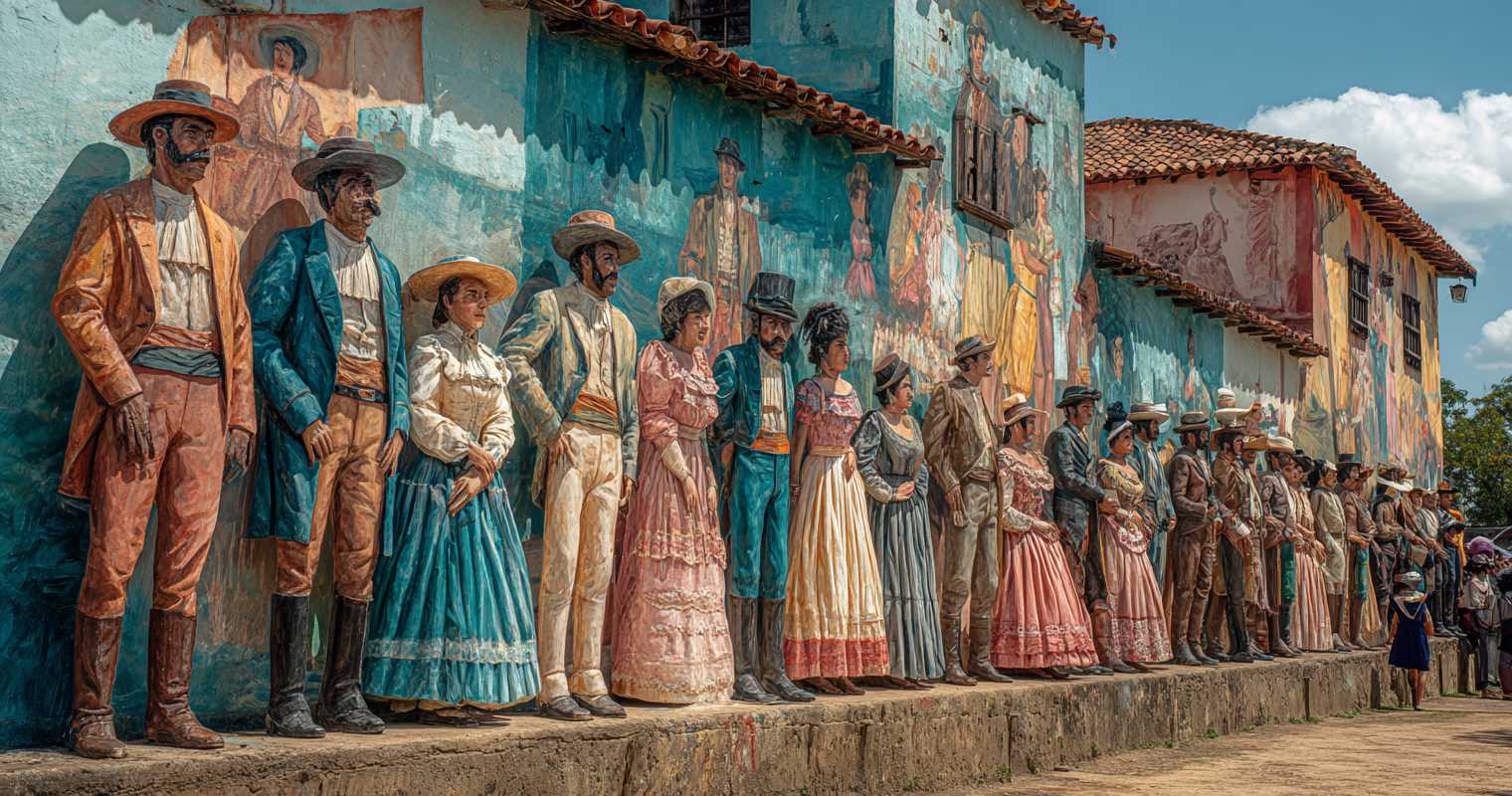
The Paraguayan History Quiz transports you into a nation where history thrives in music, traditions, and the deep connection of its people to their land. Paraguay is known not only for its fertile plains and vibrant cities but also for its strong sense of identity rooted in community life. In every market, plaza, and family gathering, you can feel how the country’s cultural heartbeat has endured across centuries. From its folk songs to its national craftwork, history is not just remembered it is woven into everyday living. The resilience of Paraguayan culture reveals how shared customs bind generations together. To learn about Paraguay is to step into a living story that still shapes its present.
The Paraguayan History Quiz also showcases how the nation blends tradition with progress. Guaraní, one of its official languages, is spoken widely, connecting modern Paraguayans to their ancestral heritage. The sounds of harp and guitar fill the air during local festivals, while traditional dishes bring families together around the table. Crafts such as ñandutí lacework display both beauty and historical significance. These customs are not relics; they remain part of daily life, sustaining a sense of continuity and pride. Exploring Paraguay’s past means discovering how culture thrives in both quiet villages and bustling cities.
The Culture of Paraguay
The Paraguayan History Quiz begins with the country’s cultural traditions, which are among the richest in South America. Music plays an important role, especially polkas and Guaranía melodies performed with the harp, Paraguay’s national instrument. These songs are more than entertainment; they are oral histories passed from one generation to the next. Festivals bring entire communities together, turning streets into stages filled with dancers in colorful costumes. Culture in Paraguay is a daily celebration of connection and identity.
Food is another central part of Paraguayan life. Dishes like sopa paraguaya, a savory cornbread, and chipa, a cheese-filled bread, have roots in local tradition. These meals do more than nourish—they connect families to their history. Artisans also keep Paraguayan heritage alive through ñandutí lace, an intricate craft admired worldwide. Each of these cultural expressions strengthens the fabric of Paraguayan identity.
The People of Paraguay
The Paraguayan History Quiz also focuses on the people who keep these traditions alive. Paraguayans place immense value on family, often living in close-knit communities where neighbors support one another. Elders share stories that preserve historical knowledge, while younger generations bring fresh energy to cultural practices. Whether through music, food, or craft, these traditions connect individuals to a shared heritage. In Paraguay, history is not just studied; it is lived through everyday actions.
Education supports this cultural continuity by teaching students both academic subjects and local customs. Children learn Guaraní alongside Spanish, ensuring that the language remains an active link to their past. Public events, from craft fairs to music festivals, create spaces where families celebrate their roots together. This intergenerational exchange reinforces the importance of tradition. Paraguay’s people remain the true guardians of its history.
9 Fun Facts About Paraguay
- Paraguay is one of the few landlocked countries in South America.
- The harp is considered Paraguay’s national instrument and is featured in many traditional songs.
- Guaraní is spoken by the majority of Paraguayans alongside Spanish.
- Ñandutí lace is one of Paraguay’s most famous handicrafts.
- Asunción, the capital, is one of the oldest cities in South America.
- Paraguay is known for its tereré, a cold herbal tea enjoyed socially.
- Many Paraguayan festivals feature traditional dance competitions.
- Chipa, a cheese bread, is a beloved national snack.
- Paraguay’s markets are vibrant centers of music, crafts, and food.
5 Serious Facts About Paraguay
- Education often includes bilingual instruction in both Spanish and Guaraní.
- Guaraní is recognized as an official language, preserving indigenous heritage.
- Family ties play a major role in Paraguayan society.
- Traditional crafts remain a vital part of the local economy.
- Music and dance are essential in maintaining cultural identity.
The Legacy of Paraguay
The Paraguayan History Quiz highlights how Paraguay’s legacy continues to evolve while staying anchored in tradition. Museums and cultural centers showcase historical artifacts, but the most powerful evidence of heritage is found in everyday life. In rural villages, old techniques for farming and weaving are still practiced. Urban areas balance modern growth with respect for cultural traditions, making history visible at every turn. This balance between past and present gives Paraguay a distinct identity.
Paraguay’s legacy is not static—it is constantly renewed. Each festival, meal, and shared story reinforces a sense of continuity. These traditions remind the nation of its cultural strength and ensure that history remains relevant. Paraguay’s unique ability to preserve its roots while embracing the future makes it an extraordinary place. This is a legacy that continues to inspire its people and intrigue visitors.
Paraguayan History – FAQ
The Paraguayan War, also known as the War of the Triple Alliance, was a devastating conflict that took place from 1864 to 1870. It had a profound impact on Paraguay, leading to the loss of a significant portion of its population and territory. The war resulted in Paraguay’s economic and social devastation, shaping the country’s history for decades to come.
Paraguayan history is rich with notable figures who have played pivotal roles in shaping the country’s development. Some key historical figures include José Gaspar Rodríguez de Francia, the first dictator of Paraguay; Francisco Solano López, the leader during the Paraguayan War; and Carlos Antonio López, known for modernizing Paraguay during his presidency.
